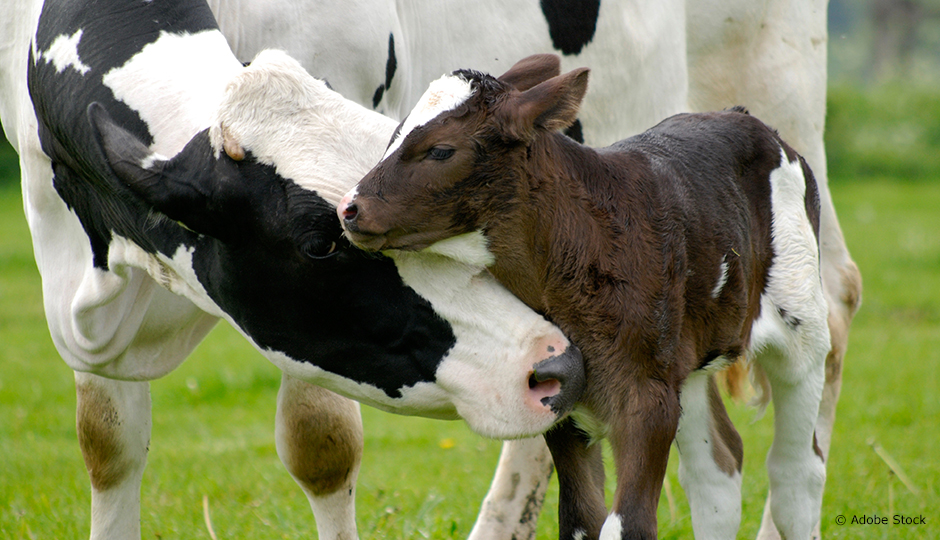The first weeks after calving is a critical period for dairy cows, as they are particularly at risk of developing metabolic and infectious diseases at this time. To reduce these risks, Professor Simon Dufour of Université de Montréal and his team have developed an adjusted milking protocol.
The incompletely milked cows had a much lower negative energy balance.
After the birth of their calf, cows can quickly produce up to 35 litres of milk per day. This causes a high demand for energy, which they are unable to meet through diet. The resulting negative energy balance weakens their immune system, increasing their risk of developing a number of diseases.
In an attempt to address this health issue, the researchers reduced the quantity of milk collected during the first five days of lactation to about ten litres per day. After a randomized control trial on 800 cows from 13 commercial dairy farms, they observed that the incompletely milked cows had a much lower negative energy balance than those that were completely milked. The incidence of infectious and metabolic diseases also decreased.
Furthermore, the cows reached their normal production volume in one week. “Production levels remained similar, but we avoided disease, suffering and treatments,” concluded Professor Dufour, who pointed out that the technique is easy to test and implement, since it requires virtually no investment on the part of producers.
The team is now working on verifying the impact of this new milking technique on fertility in dairy cows. As certain metabolic diseases, such as hyperketonemia, affect the animal’s uterine environment and interfere with reproduction, avoiding the development of these diseases could have a positive impact on fertility.
♦♦♦
This research was conducted within the program Projet de recherche orientée en partenariat – Innovation en production et en transformation laitières – VI, with financial support from Novalait and the ministère de l’Agriculture, des Pêcheries et de l’Alimentation.




